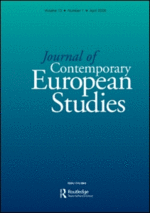Suède: | « L'Islam ne devrait pas être considérée comme une menace à l'inviolable liberté suédoise »

Spyros Sofos, professeur de sciences politiques à Lund, commune de la même région, et auteur de divers essais sur l'Islam, le nationalisme et l'Europe, nous explique les raison et les conséquences de l'islamophobie grandissante dans la localité de Malmö. Qu'est-ce qu'être musulman? Tout d'abord être musulman signifie tellement de choses différentes ! L'Etat Suédois a une vision très restreinte de ce qu'est être musulman. En effet, à Malmö les populations dites “musulmanes” viennent d'Iraq, de Bosnie, du Liban, d'Iran, de Turquie, d'Afghanistan, de Somalie ou du Pakistan. Ranger toutes ces communautés dans un seul bloc appelé "musulman" est erroné : il existe des musulmans très pratiquants et d'autres beaucoup plus séculaires, comme les Bosniaques. En fait, certains jeunes ne sont même pas pratiquants du tout, mais leurs parents le sont, on peut dire qu'ils sont culturellement musulmans. L'Islam est-elle une religion...





